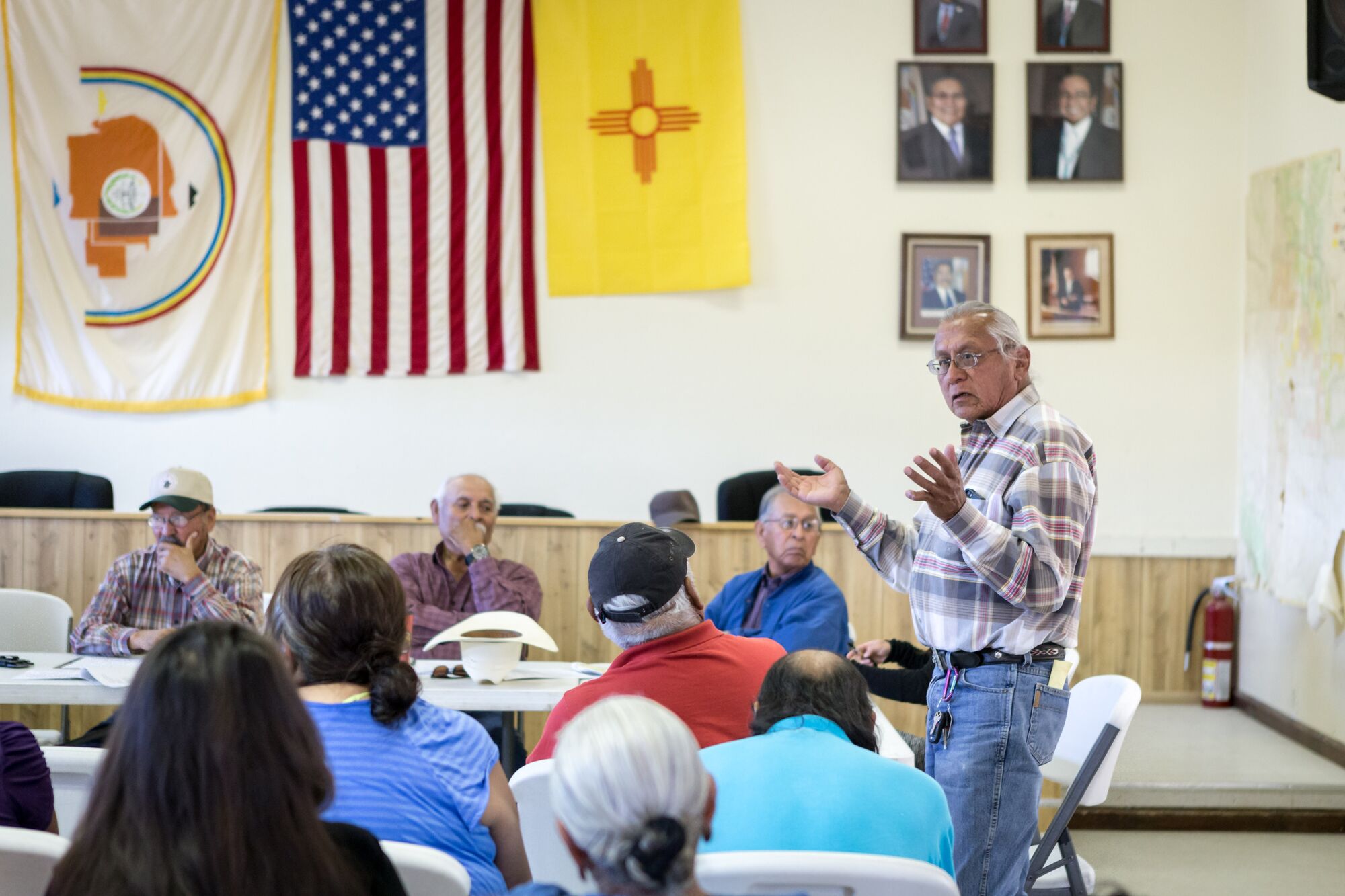New NEPA Guidance Can Give Us the Roadmap to a Just and Equitable Clean Energy Future
The Biden Administration is working to reverse former-President Trump's reckless rollbacks of NEPA. Here's what it should consider.
Permitting has dominated environmental policy discussions for the past year. From the Inflation Reduction Act to the recent debt limit deal, lawmakers on both sides of the aisle have raised concerns about our nation’s permitting process for large energy projects. When we talk about permitting, we’re often talking about the National Environmental Policy Act (NEPA), our nation’s premier environmental law that gives people a say in the projects built in their communities. This means that when the government wants to site a petrochemical plant, Liquified Natural Gas (LNG) export terminal, or pipeline through your community, you have the right to find out about it, make your voice heard, and promote decisions that are in the community interest.
But radical Republicans lawmakers beholden to special interests are actively trying to weaken NEPA. They’re trying to make it easier for industry to build toxic facilities in communities already overburdened by the worst impacts of climate change and pollution. They’re trying to upend decades of environmental law so that polluting industries can maximize their profits at the expense of our communities. In 2020, former President Donald Trump severely weakened NEPA by increasing the number of projects that could be exempted from environmental review, limiting opportunities for public engagement, and limiting cumulative impact analysis and climate considerations for big infrastructure projects.
The Biden administration is working to reverse these dangerous rollbacks through a phased rulemaking approach. In April 2022, the Council on Environmental Quality (CEQ) finalized the first step in restoring and improving the NEPA regulations by finalizing a rule that restored the definition of cumulative and indirect impacts, removed the requirement to base the purpose and need of an action on the goals of the applicant, and reinstated the ability of federal agencies to develop more protective regulations. As we embark upon the largest infrastructure build-out since Roosevelt’s New Deal to meet our clean energy and climate goals, ensuring it’s not built upon the back of historically marginalized communities must be a top priority.
Here’s what the administration should consider:
1. Focusing on Environmental Justice
NEPA is one of the most effective tools environmental justice communities possess to prevent dangerous polluting projects from impacting the health and environment of their neighborhoods. Phase II NEPA regulations must require agencies to look at project alternatives that would decrease negative impacts on air, water, and land while also looking at the cumulative impacts communities face from a variety of pollutants. It’s insufficient to look simply at how one new project impacts the health of a community. Federal agencies must take into account how these factors are interrelated and those impacts on community members.
2. Ensuring Climate Change is Adequately Considered in Project Reviews
We’re already seeing crumbling infrastructure because of climate change, and it’s critical agencies include future climate impacts into permitting considerations. While the Trump administration attempted to codify climate denial into federal decision-making, the Biden administration has done the opposite. This spring, they provided certainty to stakeholders, agencies, and project sponsors by clarifying exactly how agencies should meet their long-standing obligation to consider climate change in federal decisions. Analyzing these risks will result in safer, more resilient infrastructure for local communities as we continue to experience the negative impacts of climate change. In Phase II, CEQ should provide further clarity in the NEPA regulations by making explicit what courts and CEQ have long held — that climate change is the fundamental environmental issue, and its effects fall squarely in NEPA’s purview. CEQ should also specifically add climate change to the definition of effects.
3. Increasing Public Engagement and Accountability
The bedrock tenet of NEPA is ensuring communities have a say in the project development process. While the Trump administration sought to silence communities in favor of corporate interests, the Biden administration has an opportunity to strengthen public engagement requirements. The phase II regulations must increase transparency, mandate a timely release of documents, and require a minimum 30-day comment period for community review and public engagement on environmental assessments.
4. Keeping our Promises to Tribal Communities
Sovereign tribal governments have a unique relationship with the federal government, and the updated regulations should reflect that. They must explicitly require federal agencies to consult with tribal governments and fully respect tribal sovereignty, treaty obligations, and the federal trust responsibility. Indigenous peoples are the original stewards of our land, and federal agencies must have a process to collect and incorporate Tribal Ecological Knowledge into analyses.
5. Facilitating our Clean Energy Future
NEPA is the bridge, not the barrier, to constructing the infrastructure needed for the clean energy transition in a just and equitable way. It’s the opportunity for us to do what the fossil fuel industry never did, and ensure that the solar and wind farms, mines, battery recycling facilities, and transmission lines needed for the energy transition are built in close consultation with the communities impacted by their construction. By restoring the NEPA regulations, the Biden administration can provide much-needed certainty and well-defined guidance for project sponsors, investors, the public, and federal agencies that will ultimately result in better, more resilient clean energy projects while reducing the likelihood of costly litigation. Earthjustice, along with other conservation and environmental justice organizations, recently released a roadmap on steps that the Biden administration can take to facilitate a rapid expansion of transmission infrastructure, while protecting and working in close consultation with impacted communities.
Established in 1989, Earthjustice's Policy & Legislation team works with champions in Congress to craft legislation that supports and extends our legal gains.
Geoffrey Nolan
Public Affairs and Communications Officer, Earthjustice
gnolan@earthjustice.org
